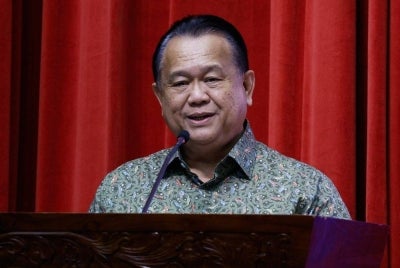Communications act amendment can overcome gaps

SHAH ALAM - The Communications and Digital Act amendment tabled by the Communications and Digital Ministry in Parliament earlier this year would be able to ensure the gaps in the act could be overcome.
Universiti Sains Islam Malaysia (USIM) Information Technology and Computer Science Discipline chairman Tamhidi Centre Datuk Dr Mohamed Ridza Wahiddin said it once again could overcome the issue of cybercrimes becoming more prominent.
“Section 233 of the Communications and Multimedia Act 1988 stated the ‘improper use of network facilities or network services’ were too general and not detailed.
“That’s why the act must be specific and refined by authorities to not raise any confusion. The amendment must give a guarantee towards users’ safety as a whole,” he told Sinar
Ridza said the Communications and Multimedia Act that was last implemented 25 years ago must be studied again and be made suitable towards the rise and change in cybercrime.
“New technologies such as deepfake copying the voice or face of an individual had never existed in the era of the act’s establishment. However, cybercrime offences were expected to continue to increase in the future following the rapid use of artificial intelligence (AI) technology.
“To curb the cybercrime of AI technology, parties responsible were urged to take the same approach through software and computer devices that could quickly identify attempts to impersonate voices and faces,” he said.
Ridza supported the amendment of the act as it would ease the tasks of enforcement forces such as the police in stopping cybercrime.
Deputy Communications and Digital Minister Teo Nie Ching on Sunday explained the ministry through agencies under it are studying again the acts following the statement by Inspector General of Police Razarudin Husain.
Razarudin has suggested for the existing laws related to cybercrime to be studied and include elements of fraud through computer software and devices.
He said there was evidence that the AI technology was misused for fraudulent purposes when a person’s voice or face can be imitated to deceive family members and close friends.
Although the amendment suggested by the government was important, cyberlaws expert from Universiti Malaya (UM) Professor Dr Abu Bakar Munir viewed the main issue that must be given attention to are the weakness of the enforcement related to cybercrimes.
“Among the most important input to be inserted in the amendment of the act was to impose stricter enforcement towards those committing cybercrime.
“Recently, we always hear of the loss of money and data leaks. Almost all stemmed from one phone call or message from scammers.
“The question was how was the number obtained? Our nation has enough laws, but the enforcement of the act is still weak,” he said.
Download Sinar Daily application.Click Here!














